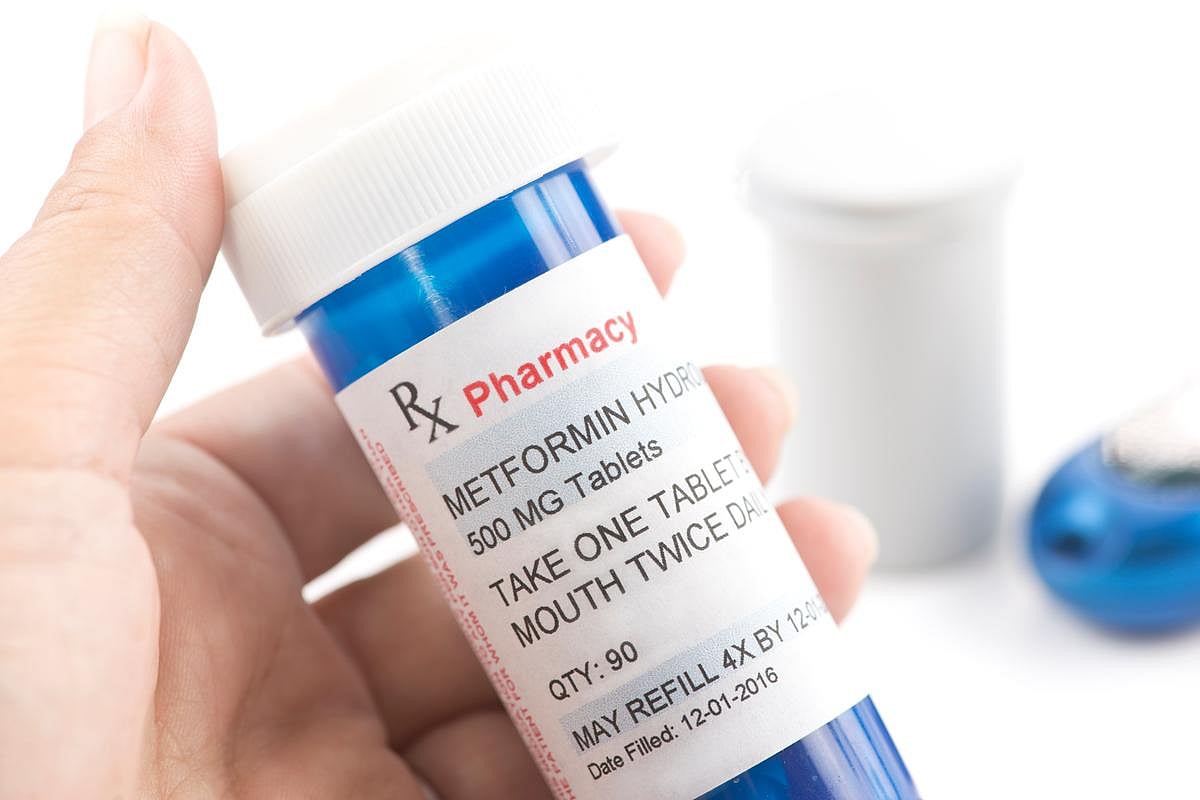Manténgase sano!

- Ernie Mundell
- Posted November 27, 2024
Diabetes Drug Metformin Might Help Fight Lung Cancer
Already the go-to drug of choice for millions with type 2 diabetes, metformin might also fight lung cancer if those patients have it as well, new research shows.
Metformin appears to help boost the benefits of immunotherapy drugs used to fight lung tumors, according to a team led by Dr. Sai Yendamuri. He directs thoracic surgery at Roswell Park Comprehensive Cancer Center in Buffalo, N.Y.
There was one big catch to the new finding, however.
"Our work shows that the anticancer effect of metformin is active only in the context of obesity,” Yendamuri said in a Roswell news release. “We observed longer recurrence-free survival in overweight patients who took metformin and underwent surgery.”
The study was published recently in the Journal of the National Cancer Institute.
Lung cancer remains the leading cause of cancer death for Americans. Almost 235,000 new cases of the illness are diagnosed each year, and more than 125,000 people die from lung cancer annually, according to the American Cancer Society.
According to the researchers, prior data had suggested that metformin might have anti-cancer benefits, although clinical trials hadn't been able to confirm this.
Yendamuri theorized that could be because the benefit might only be occurring among obese patients.
He designed the new study to test that theory. It involved 511 lung cancer patients with a body mass index (BMI) of 25 or higher (above the threshold for overweight/obesity), and 232 patients with a BMI of less than 25, not considered overweight.
All had non-small cell lung cancers (NSCLC), the leading form of the disease, and all had surgery to remove a lung tumor.
A second group included 284 overweight and 184 non-overweight patients with NSCLC who received a type of immunotherapy called an immune checkpoint inhibitor.
The main finding: “Our work shows that the anticancer effect of metformin is active only in the context of obesity,” Yendamuri said. “We observed longer recurrence-free survival in overweight patients who took metformin and underwent surgery.”
How is metformin having an anti-cancer effect? Studies performed in mice suggest the drug appears to blunt the damage obesity can do to the human immune system.
That might render immune-focused cancer meds more effective, but only among obese individuals.
“By calling attention to the potential of metformin-containing treatment regimens to improve clinical outcomes for obese and overweight patients, we hope to inspire future studies,” said study co-author Joseph Barbi.
“We believe our findings provide a rationale for testing drug combinations that might have the potential for preventing or treating lung cancer more effectively in this growing pool of patients," said Barbi, an assistant professor of oncology in Roswell Park’s Department of Immunology.
Barbi and Yendamuri plan a clinical trial to test metformin's potential for preventing lung cancer in overweight or obese people at high risk for the disease.
“Metformin has been used for 30 years and has a long record of safety -- and it’s one of the most widely accessible and affordable drugs of any kind,” Yendamuri said. “If we can repurpose it to fight cancer, that’s very exciting.”
More information
Find out more about lung cancer at the American Cancer Society.
SOURCE: Roswell Park Comprehensive Cancer Center, news release, Nov. 24, 2024

